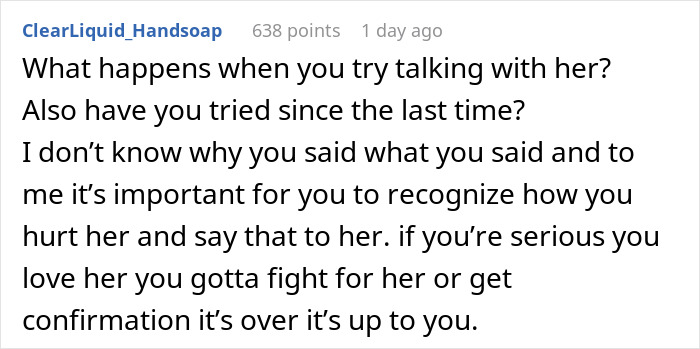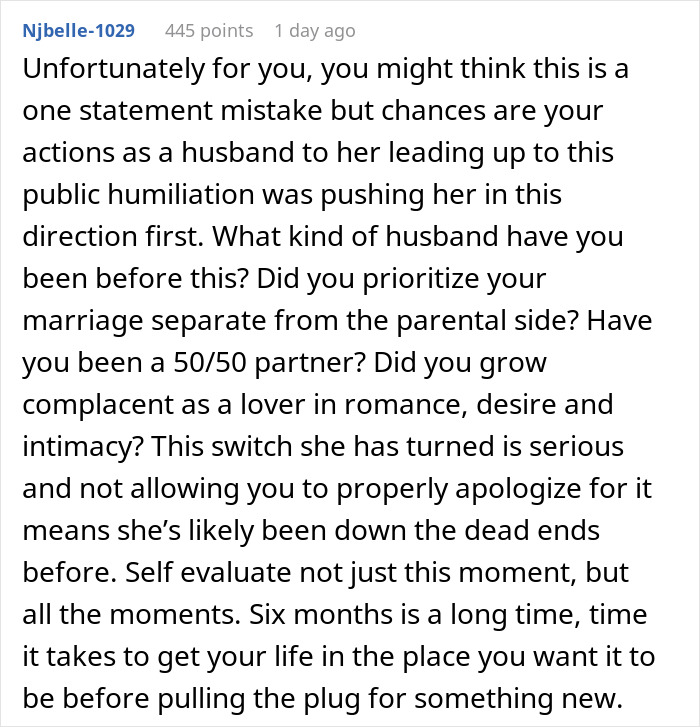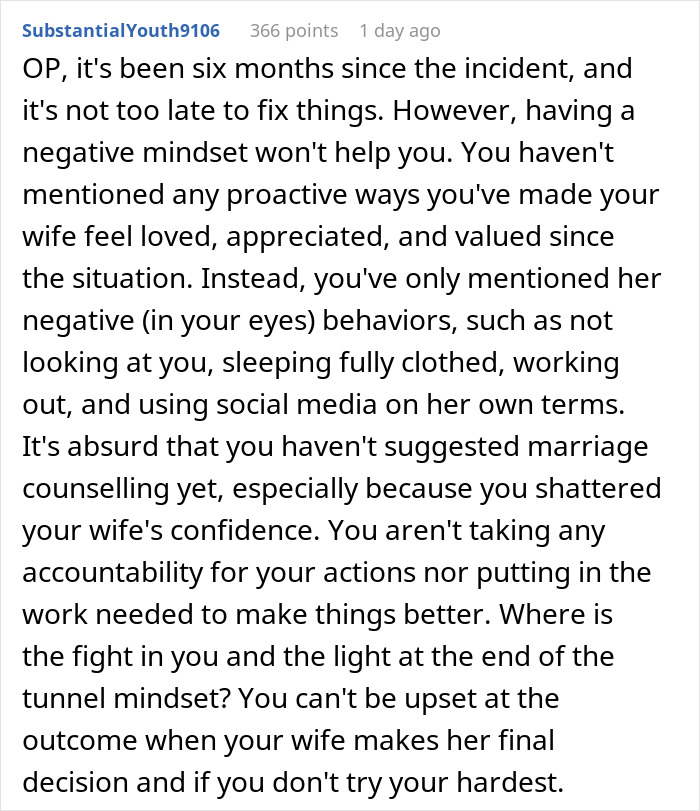If you’ve ever spent time with a couple that sees no wrong in belittling or nagging one another in public, you know how uncomfortable these situations can get for everyone involved.
A few days ago, Reddit user TemppThrowawa submitted a story to the platform’s ‘True Off My Chest‘ community about inadvertently becoming one of these people.
The man said he was drinking and the alcohol pulled on his tongue, releasing the words “you don’t fall in love with looks” from his mouth. The phrase instantly made his wife feel ugly and his damage control isn’t working.
How you treat your spouse in public often reflects the dynamics of your relationship

Image credits: J carter / Pexels (not the actual photo)
So when this man said a hurtful remark about his wife, she began thinking about bigger underlying issues at play



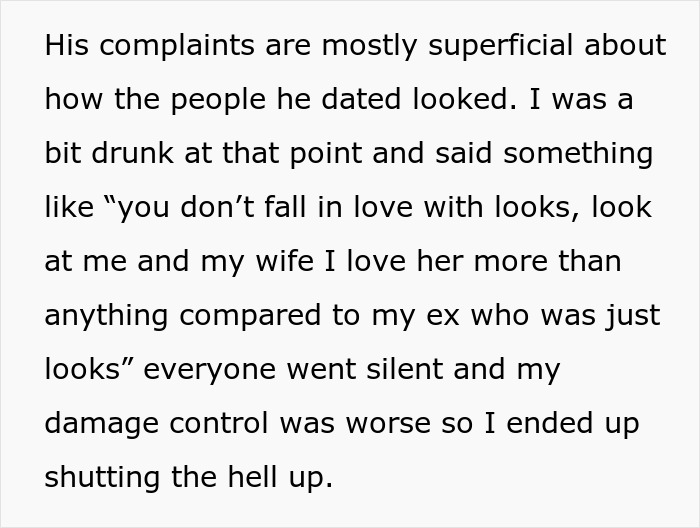

Image credits: Alexy Almond / Pexels (not the actual photo)
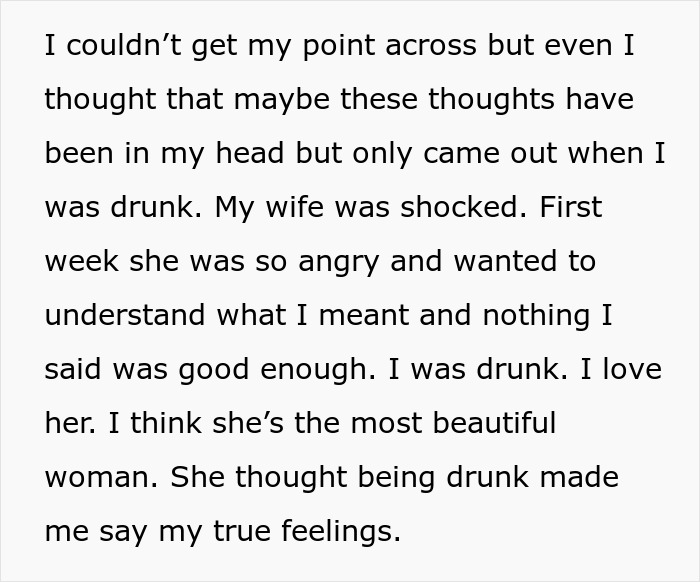
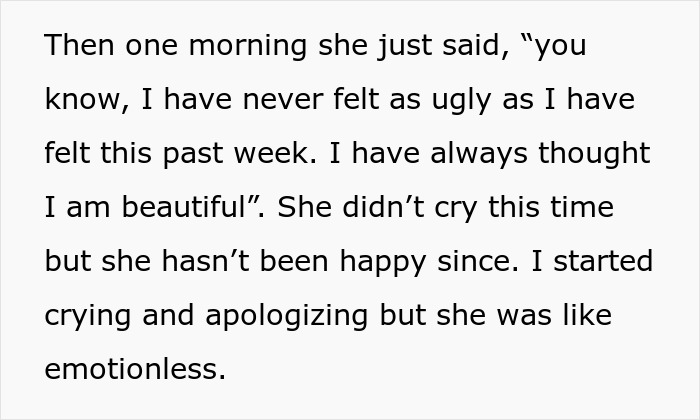
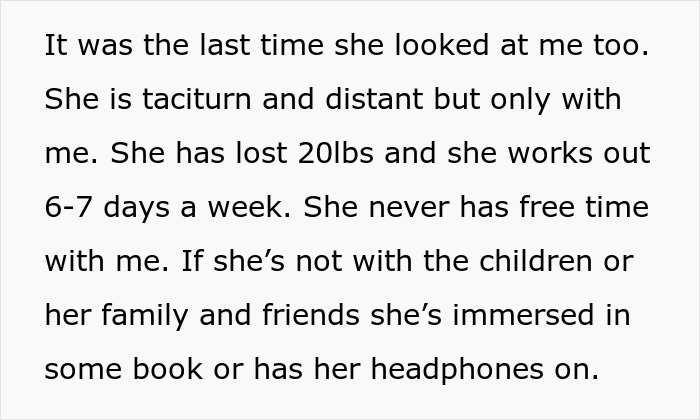

Image credits: cottonbro studio / Pexels (not the actual photo)
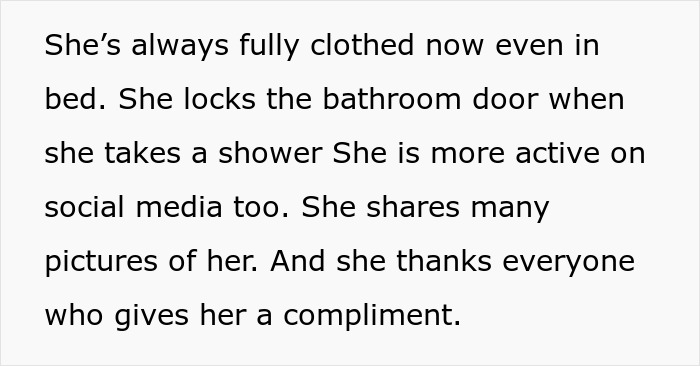
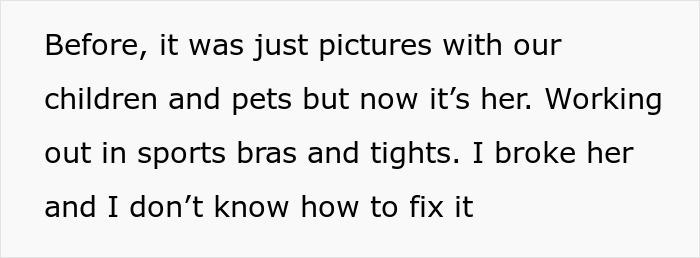
Image credits: TemppThrowawa
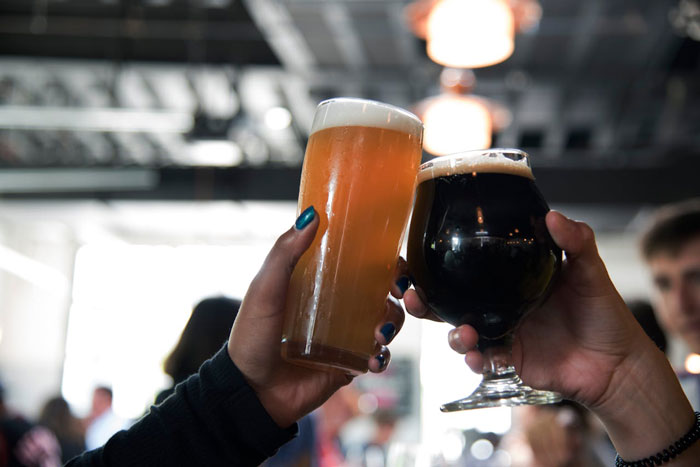
Image credits: ELEVATE / Pexels (not the actual photo)
Does alcohol make you tell the truth?
Belisa Vranich, a clinical psychologist specializing in alcohol addiction, says that there’s usually some version of one’s true feelings that come out when they’re drunk.
“People dredge up feelings and sentiments from somewhere deep in their brains, so what one says or does certainly reflects what’s going on deep down,” she explained.
Alcohol affects the cerebral cortex, which is what makes a person more likely to act and speak in ways they may not when sober.
“There’s a lot of truth to that ancient Latin saying, ‘in vino, veritas.’ Alcohol can most definitely act as a truth serum — something that allows people to say what is truly on their mind.”
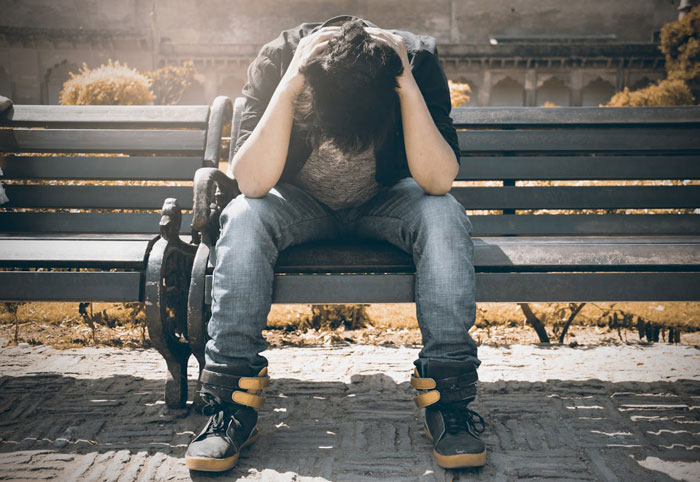
Image credits: Inzmam Khan / Pexels (not the actual photo)
“I was drunk” may not be a good way to avoid responsibility for your behavior
According to research published in the Journal of Abnormal Psychology, a publication of the American Psychological Association, people under the influence of alcohol are simply less bothered by, and oftentimes do not care about the repercussions.
The 67 participants in the study, aged 21-35, were split into three groups. The first two groups received a placebo alcohol while the third group got the real thing. The participants in the third group drank until their blood alcohol content was at about .09 percent – just over the legal driving limit.
Participants then completed a computer task, in which they were asked to identify flashing pictures of tools and guns. The researchers found that all groups made mistakes. Afterward, each participant was asked if they answered the previous question correctly, incorrectly, or were unsure.
“People who were drunk were just as likely to admit their mistake as those who were sober,” said Bruce Bartholow, author of the study and associate professor at the University of Missouri, adding that sober participants adjusted their behaviors and would slow down on the next trial after making an error, while intoxicated participants continued to make errors without adjustment.
“People need to be aware of where they are drinking and who they are with to understand the implications of their possible actions,” Bartholow explained.
He said because people are aware of their behavior while intoxicated, they should be liable for their actions.
After sharing the story, the man soon reiterated how he attempted to damage control

Image credits: KATRIN BOLOVTSOVA / Pexels (not the actual photo)
Couples need to be on each other’s side while in public
In the Redditor’s defense, you could argue that our inner resources aren’t infinite and when our batteries are drained, there’s less vigilance and self-monitoring even when you actively cultivate love.
But as husband, father, and author of Friends, Partners, and Lovers Kevin A. Thompson points out, healthy marriages consist of two people who can discern the difference between public and private things.
“I never want to embarrass my wife because of my actions,” he writes in his blog. “At times this isn’t avoidable–because of my own ignorance–but in most situations, if I make wise decisions she will not be embarrassed by me.”
“The most common way I see husbands embarrassing their wives is by losing control of themselves–either because of alcohol or anger.”
Thompson says that oftentimes when men lose control, they aren’t aware enough to feel embarrassed for themselves so their wives are embarrassed for them.
“In accidental embarrassments, my wife must be gracious but also willing to tell me what I have done. In all situations, I must ensure that I don’t make her ashamed to be associated with me.”
People think there’s more to this particular situation than meets the eye





